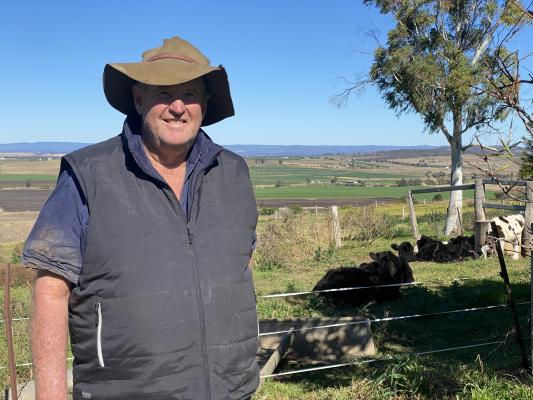By Jess Baker
In the not-too-distant past, virtually every family in Freestone Valley had a dairy farm.
Today, fourth-generation dairy farmer Bill McVeigh is one of only two dairy farm owners in the Valley.
At 60 years old, Bill has spent his entire life around cattle. Seven days of the week, 365 days of the year, he will wake up at 4.30am for a 5.30am start on the farm, and he will not head home until after 6pm.
He and his 18-year-old son Dan spend every one of their days tending to their 91 cows and taking care of their paddocks. Bill also grows all of the grain and hay he uses himself.
“There’s never a dull moment,” Bill said.
The demanding nature of the job barely seems to faze Bill, but he said he can see why it might be make the industry an unattractive one to younger generations.
“It’s hard on the young ones wanting to take on the dairy farm because it’s a seven day a week job,” he said.
“And is the reward there? We’re just price takers not price makers.”
Holidays are few and far between for most dairy farmers, as finding people to take on their work whilst they’re gone can be wildly expensive and a significant risk to the business.
“We get paid on the quality of our milk, so you’ve got to be passionate about what you do,” Bill said.
“If you’re not passionate, the quality will suffer and so will the pay.”
Bill’s own dairy farm supplies 23,000 litres of milk to Norco every two days. The job is labour-intensive and requires a unique, learned skill.
To go on holidays for two weeks could therefore put 161,000 litres of milk at risk and, if replacements were hired for both Bill and Dan, could cost up to $3000 in wages.
By the time accommodation and other holiday expenses are taken into consideration, Bill said “you’ve got nothing left.”
“Financially it’s very hard to do, but you’ll find most dairy farms around here are family owned and run.”
Bill said he remembered a time, just six or seven years ago, when the Valley was home to nine dairies.
But the recent drought, particularly through 2018 and 2019, had a devastating impact on farms across the Southern Downs.
“It was hard. We got rid of a lot of cattle. Our milk production dropped 60 percent,” Bill said.
He said another factor in the steady decline in local dairies was the waning interest in dairy farming.
A number of local dairy owners and operators retired in recent years, and there were few people – or, in some cases, no people – willing and able to accept the baton.
As Bill nears an age at which many retire, he has begun thinking about what might happen to his own dairy farm one day.
“Everything has an end date,” Bill said.
“When you’re 65, you don’t want to be getting up at 4.30am every day.”
Bill said his five children, now all grown up, help out at the farm when they are able. But if none of them are interested in taking over the business, Bill might one day soon have to sell his little patch of paradise.







